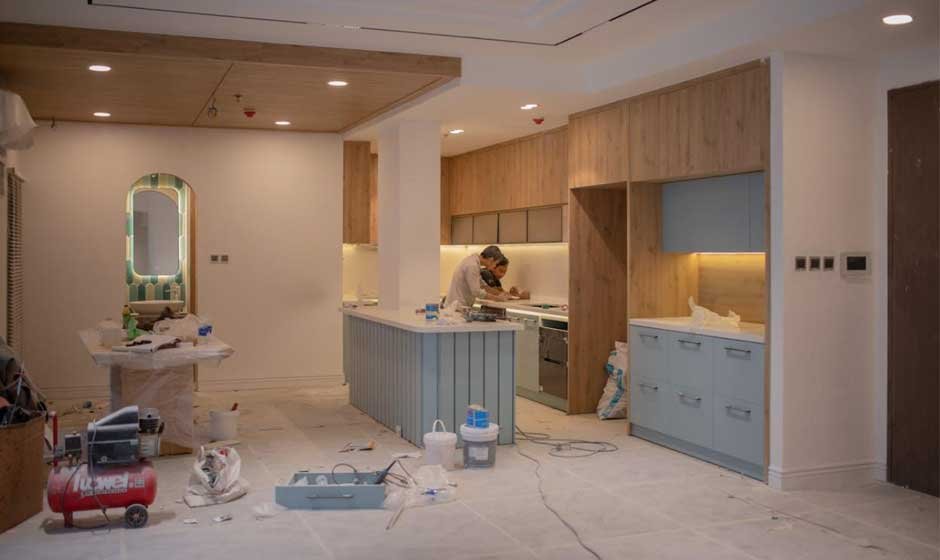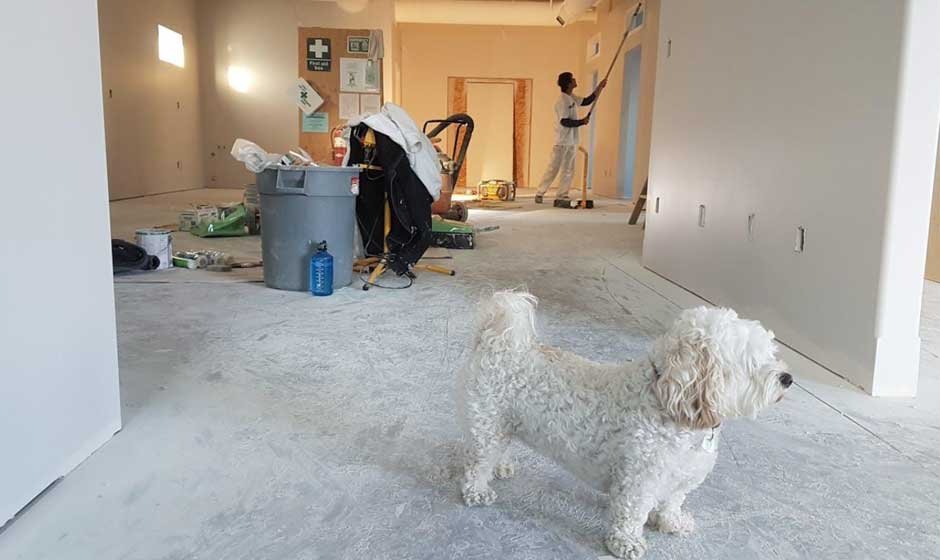A major house renovation changes your daily life. Walls come down, floors get ripped up, and dust settles everywhere. It affects your routines, your living space, and your peace of mind. Renovation work usually takes longer than expected and costs more than planned. You may need to relocate furniture, protect your belongings, or even temporarily leave your home. These disruptions make it hard to stay focused and patient. With the right mindset and preparation, you cannot only survive but also enjoy the renovation projects of your home.
Plan Your Living Situation Early
Before work begins, decide how you will live during the renovation. If the project is big, it may be safer and easier to move out. If you choose to stay, prepare for dust, noise, and limited access to rooms. Set up a clean and functional space where you can eat, sleep, and relax. Make sure you have access to essentials like water, power, and a bathroom. Talk with your builder about which rooms will be off-limits and for how long. Try to keep one part of the house as a calm zone. If you have pets or children, consider their needs too. Create a schedule that outlines when loud work will take place. This helps you plan your time and avoid the most disruptive moments. A clear living plan makes the entire renovation more bearable and keeps daily life moving.
Prepare Your Home and Items for Renovation and Storage
Before the renovation starts, take time to organise and protect your belongings. Clear out the rooms that will be affected and remove any items that could be damaged or get in the way. Pack household items securely in boxes, prepare fragile items for storage, and label everything clearly. Keep everyday essentials accessible, but move less-used items into storage. Use basic materials such as cardboard, blankets, or plastic covers to shield furniture and surfaces from dust and debris. Avoid overloading boxes and keep them in a dry, safe area. If space in your home is limited, consider using off-site storage or asking a friend to hold onto a few things. Preparing your home this way creates more space for workers, prevents damage, and makes the renovation process smoother overall.

Communicate Clearly With Your Contractors
Good communication is key. Talk with your builder before the renovation begins. Set clear goals and expectations. Make sure you understand the timeline, daily work hours, and which areas will be affected. Ask for regular updates. Written updates or scheduled check-ins help track progress and prevent surprises. Keep a record of all agreements, changes, and costs. If problems arise, address them early and stay calm. Use simple and clear language. Avoid vague instructions or assumptions. Respect their expertise, but make sure they respect your needs. Being present on-site regularly, even for a short time, shows that you care and helps solve small issues before they become major problems. Clear and steady communication makes everything run more smoothly.
Set a Realistic Budget and Include a Buffer
Renovation budgets often go over the original estimate. Set a clear budget, but add a buffer of 15 to 20 percent for unexpected costs. These might include structural repairs, material delays, or changes in design. Make a list of must-have features and nice-to-have extras. This helps you make decisions when money gets tight. Track spending using a spreadsheet or an app. Keep receipts and review costs weekly. Talk to your contractor about payment schedules and make sure everything is in writing. Avoid changes once the work starts unless they are necessary. Every change can cost more time and money. A clear and balanced budget prevents stress and keeps your renovation moving forward.
Clean Regularly and Manage Dust
Dust builds up fast during construction. Clean key areas daily, f.e, bathroom and kitchen during renovations, even if it’s just a quick sweep. Use plastic sheets or dust barriers to seal off construction zones. Keep windows open when possible for airflow. Use a vacuum with a HEPA filter to remove fine dust particles. Ask your contractor about dust control measures. Some builders offer cleaning services as part of the job. Protect soft furnishings with covers or move them to another room. Clean surfaces like countertops, doorknobs, and floors often. A tidy space reduces stress and prevents health problems caused by dust. Staying on top of cleaning makes the space feel less chaotic and more livable.

Stick to a Daily Routine When Possible
Daily routines give structure during times of chaos. Even during a major house renovation, try to wake up, eat, and sleep at regular times. Keep your calendar updated and plan small breaks for rest. Set time limits for dealing with renovation tasks each day. This avoids burnout and helps you stay focused. Include time for normal activities like walking, reading, or seeing friends. If you work from home, find a quiet place to focus. Noise-cancelling headphones and clear boundaries help you stay productive. Life goes on, even during major work. Keeping a routine helps you stay grounded and feel more in control.
Take Time Off When You Need It
Living through a major house renovation can be overwhelming. If things feel too stressful, take a break. Step away from the project for a day or a weekend. Visit friends, take a walk, or go on a short trip. Time off gives you a fresh view and helps you recharge. You don’t have to be on-site all the time. Trust your contractor to handle daily work and check in at key points. It’s better to return with clear energy than to push through when you are tired or frustrated. Short breaks can improve your mood and decision-making. Make self-care part of your plan.

Conclusion: Survive and Thrive Through Your Major House Renovation
A major house renovation tests your patience, budget, and energy. But with good planning, strong communication, and a bit of flexibility, you can make it through with your sanity intact. Set clear goals, protect your space, and don’t forget to care for yourself during the process. Stick to routines, clean regularly, and take breaks when needed. Prepare your home and your mind before the work begins. This guide offers simple, direct steps to help you stay organised and calm from start to finish. Your home will be better for it—and so will you.










